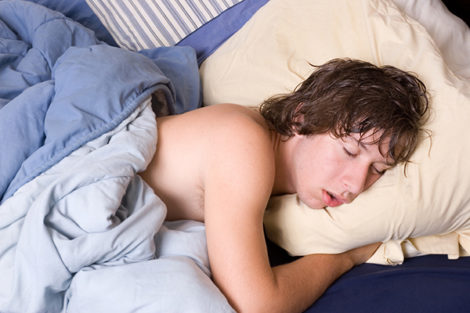
Image: iStock/ktaylorg via AFP Relaxnews
New European research has revealed that many of us were sleeping for longer during the COVID-19 lockdowns, however on the downside, the quality of our sleep was worse.
Carried out by researchers at the University of Basel and the Psychiatric Hospital of the University of Basel, the new study surveyed 435 adults in Austria, Germany and Switzerland about their sleep rhythms and sleep behavior during the phase with the strictest COVID-19 restrictions, which was a six-week period between mid-March until the end of April.
The survey responses, which were published in the scientific journal Current Biology, showed that 75% of the participants reported sleeping up to 50 minutes longer during the lockdown than before the lockdown.
The team explains that research has suggested that many sleep disorders are due to a busy modern lifestyle, with work and social commitments setting a sleep cycle that is often not in line with the body’s own internal biological clock. In addition, as we sometimes have a different sleep schedule on weekends, this can lead to what is called “social jetlag,” a difference in sleep timing and duration between work days and days off. As 85% of those surveyed were working from home during this time, the researchers say that sleeping longer could partly be due to the fact that people no longer had to get up and commute to work in the morning, and could have led to a reduction in “social jetlag.”
“This suggests that the sleep-wake patterns of those surveyed were guided by internal biological signals rather than social rhythms,” says psychologist Dr. Christine Blume.
However, although the participants reported sleeping longer, they also reported that the quality of their sleep deteriorated. Dr. Blume says that this is not surprising, as the situation was unprecedented and stressful in many ways, causing people to worry more about finances, health, childcare and other aspects of daily life.
But she does have one tip for how to improve sleep, saying, “Our findings suggest that physical activity outdoors could counteract a deterioration in sleep quality.” Dr. Blume also says that more flexible working hours and no commute to work could also have potential benefits, giving us more time to sleep. JB
RELATED STORIES:
How to sleep better during the COVID-19 outbreak
Not getting enough sleep could increase risk of asthma attacks, says new study